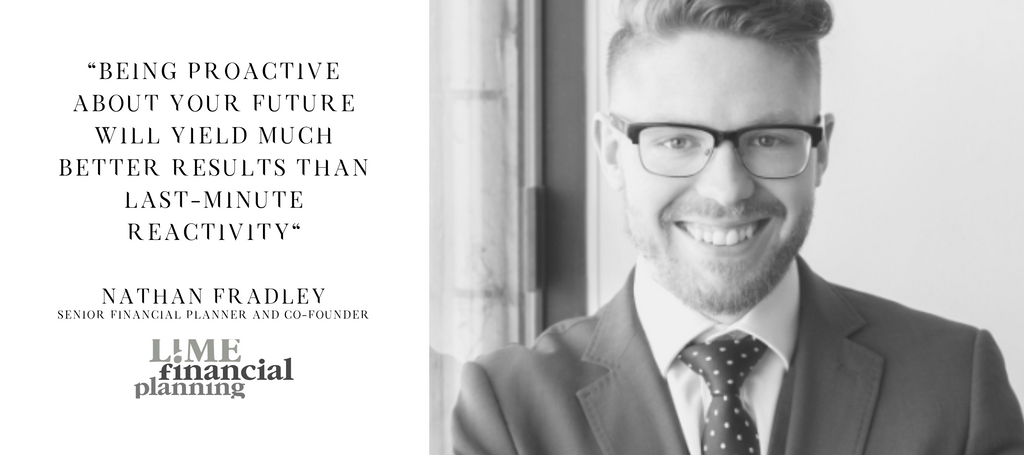Your Cart is Empty
June 24, 2020 5 min read
Unless you’re an accountant this end financial year’s tax estimate is set to be a touch complex. Working from home for an extended period of time means that many of us are eligible to claim more tax offsets than in the past. Since our homes have been our office for a quarter of a year or so, we didn’t want to miss any claimable home office expenses. We decided to speak with the experts.
Senior Financial Planner and Co-Founder of Lime Financial Planning, Nathan Fradley generously offered to help us navigate the perplexing quagmire that is our EOFY tax return. Your accountant will definitely thank you for thinking of these things in advance!
Remote work is a new frontier for many. You may not know that working from home means that a portion of your home expenses may be claimable as a tax deduction.
These include things like internet and electricity expenses, consumables and stationery. Anything that comes under your home-office really.
Normally, you would need to work out all of your work-related home expenses, based on how many hours a week you work at home, and keep fastidious records. Luckily, due to the nature of the pandemic, the Australian Tax Office (ATO) has created a ‘shortcut’ method of 80c per hour, to save time and calculations –but only from March 1 2020.
The shortcut method is still in place for the 2021 tax return, but wont continue next year (21/22)
It’s best to get advice from your accountant as the shortcut method may result in a lower deduction than you’re actually eligible for. It’s still great news for those of us who may be a touch lax on keeping records.
Generally speaking, you can claim a tax deduction on things you bought or paid for, which were required for you to earn income. Here’s an article that goes into a bit more detail. These tax-deductible expenses can help reduce the taxable income you’re assessed on, which means you pay less tax!. IF you anticipate a drop in income next financial year, it may also be beneficial to claim on these things this financial year.
Some tax-deductible expenses you can prepay include:
These kind of expenses are always tax-deductible throughout the year, but if you pay them right before the end of the financial year, you get your money back sooner! Here’s a link to the ATO’s general information on prepaid tax-deductible expenses.
Good news! Personal Deductible Superannuation contributions are also tax-deductible.
So many people just set and forget their super. But did you know that you can addup to $25,000 a year in total into your Superannuation fund? This includes what your employer has already put in.
2019/20 was also the first year you can utilise the 2019 cap as well!
In layman’s terms: You can now go 2 years back.Let’s say your employer put in $15,000 this year and $15,000 the last 2 years – you have $10,000 plus $10,000 plus $10,000 you could add into your Super.
You can check how much available cap you have through this process on the mygov website:
So how does this benefit you? It helps to reduce your taxable income. It also builds up your superannuation quite dramatically for your future financial security and since investment markets are ‘down’ right now, this can springboard your future super balance!
It needs to be stated that we are in uncharted waters with the current market circumstances.
If you’re looking to build long term wealth, now is a great time to learn about investments and take advantage of opportunities as they arise.
We always recommend avoiding “get rich quick” investments such as hot stock tips, currency trading or anything that sounds too good to be true. Focus on building long term wealth.
Nathan offers the following 5 tips for a baseline of finances to consider prior to investment:
The end of the financial year is a magical time where everyone rushes to make the most of their financial situation. Once you have finished getting everything together, be sure to plan out next year - or better yet, the next 5 years. Being proactive about your future will yield better results than last-minute reactivity.

There may be other items as well depending on your circumstances. It’s always ok to ask your accountant or a financial planner.
Nathan Fradley is the Head of Advice, Senior Financial Planner, Ethical investment expert and Co-Founder atLime Financial Planning and Director of Ethos.
We’re super grateful that Nathan took the time to help us navigate the EOFY with some real-talk. If you have any questions related to planning for your retirement, super or investments you can book a chat with Nathan for free.
October 17, 2023 2 min read
May 10, 2023 5 min read
The She Lion Community (you) comprises an incredible mix of talented and inspirational people who are fearless leaders, professionals, motivators, agitators and everything in between.
We recently asked this question to our community: “If you could carry one piece of advice in your bag for life or business and beyond, what would it be?" with a $300 She Lion voucher up for grabs to thank the winner for their answer.
April 19, 2023 3 min read
With the right mindset and techniques, you can turn obstacles into opportunities. Introducing She Lion's 3P Framework (TM): Perception, Pragmatic Positivity, and Prolific Creativity. Let's dive in!